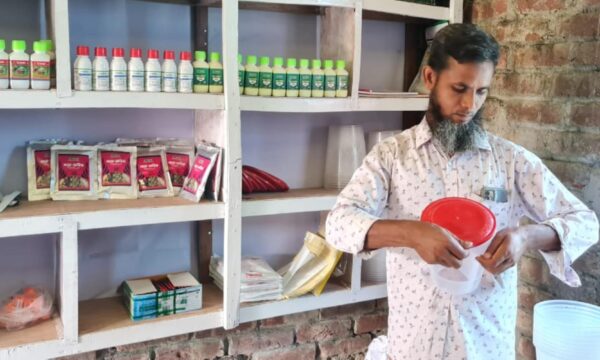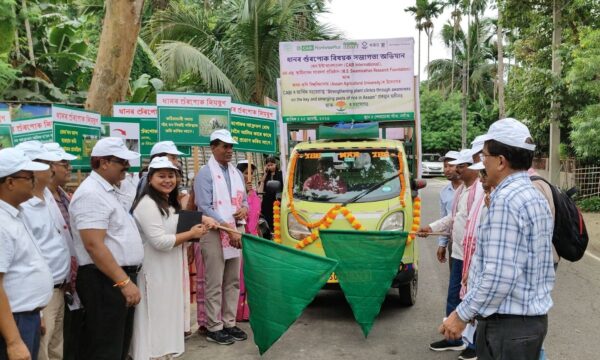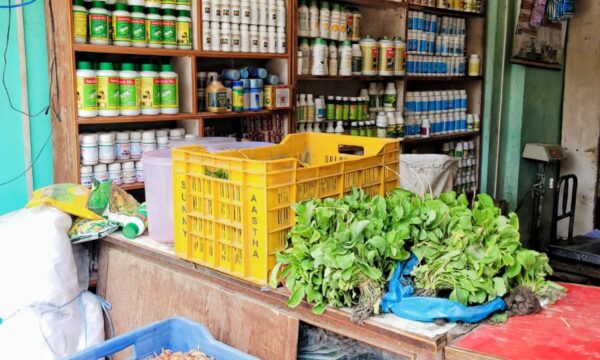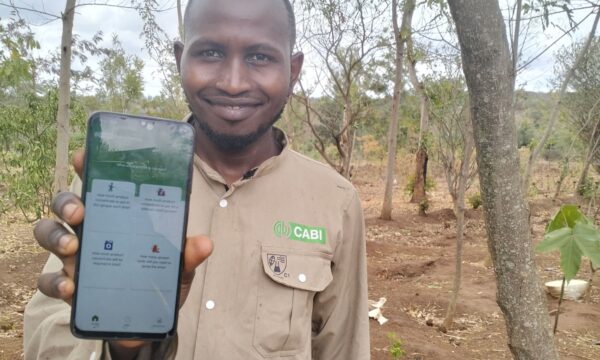In Bangladesh, agriculture forms the backbone of rural communities. It employs nearly two-thirds of the workforce, many of whom are women. However, the sector faces significant threats from plant health challenges, including devastating crop pests such as invasive fall armyworm. Moreover, the threats disproportionately affect smallholder farmers, especially women. At 58%, women make up an important – but often overlooked – percentage of the agricultural labour force. Their contribution is central to the country’s food security. Yet, they are often unable to access valuable plant health information and resources, especially around climate-smart pest management.
In response, PlantwisePlus is working to drive impactful changes across the country. The programme has partnered with the Department of Agricultural Extension (DAE) and the Bangladesh Agricultural Research Council (BARC).
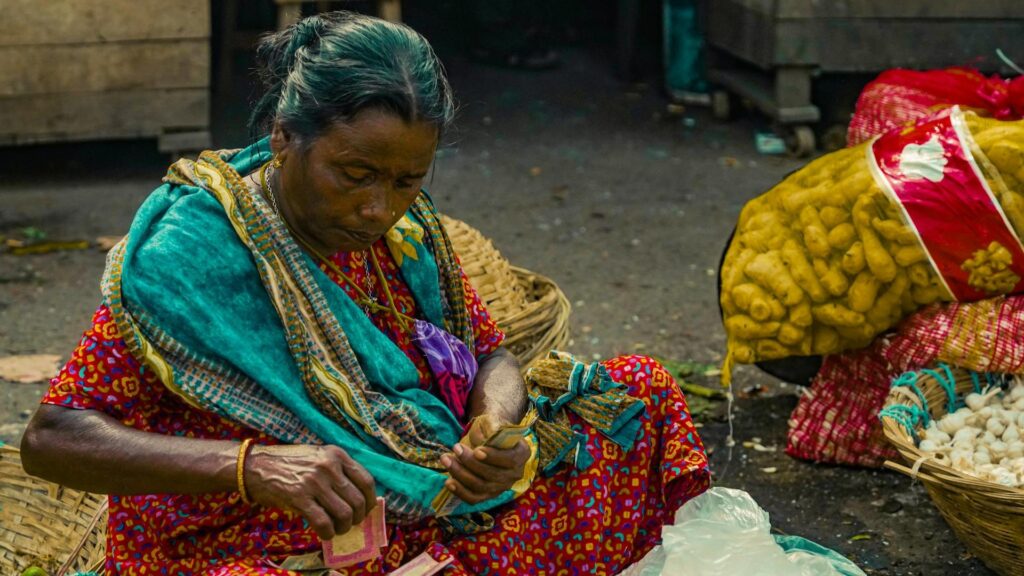
On Rural Women’s Day, we look at how the programme has made efforts to strengthen crop protection while empowering farming communities, especially women. Working in partnership, it helps farmers build more resilient agricultural systems and adopt environmentally friendly farming techniques to address challenges, now and in the future.
Launching Bangladesh’s Gender Technical Working Group
In April 2025, CABI marked a significant milestone with the launch of the Gender Technical Working Group (GTWG) in Dhaka. This group aims to ensure gender inclusivity in rural advisory services and promote women’s representation across all levels. The GTWG will focus on issues such as promoting gender-sensitive policies and reforms, and facilitating skill strengthening and knowledge exchange. It will advocate for the empowerment of women and youth in agriculture.
Bringing benefits for inclusive rural development, CABI organized the GTWG’s second meeting in September 2025 in Dhaka. Seventeen members from diverse organizations took part. The event marked a vital step in fostering gender-responsive agricultural advisory services nationwide.
Dr Saleh Ahmed (Country Coordinator, PlantwisePlus) and Dr Md. Abdus Salam (Member Director – Crops, BARC) opened the event and co-chaired. They emphasized the importance of equitable and inclusive access to agricultural extension services. Mr. Abdul Rehman, (Deputy Director, CABI in Pakistan), gave an overview of the PlantwisePlus programme. He highlighted its role in strengthening agricultural advisory systems through plant clinics and farmer-focused services.
Ms Sajila Khan (Gender Coordinator, CABI) led the second session. She introduced gender concepts and explored the role of GTWG members as “gender champions” within their respective institutions. Members from BARC and Welthungerhilfe shared case studies illustrating how gender-inclusive approaches have led to measurable impact in their projects.
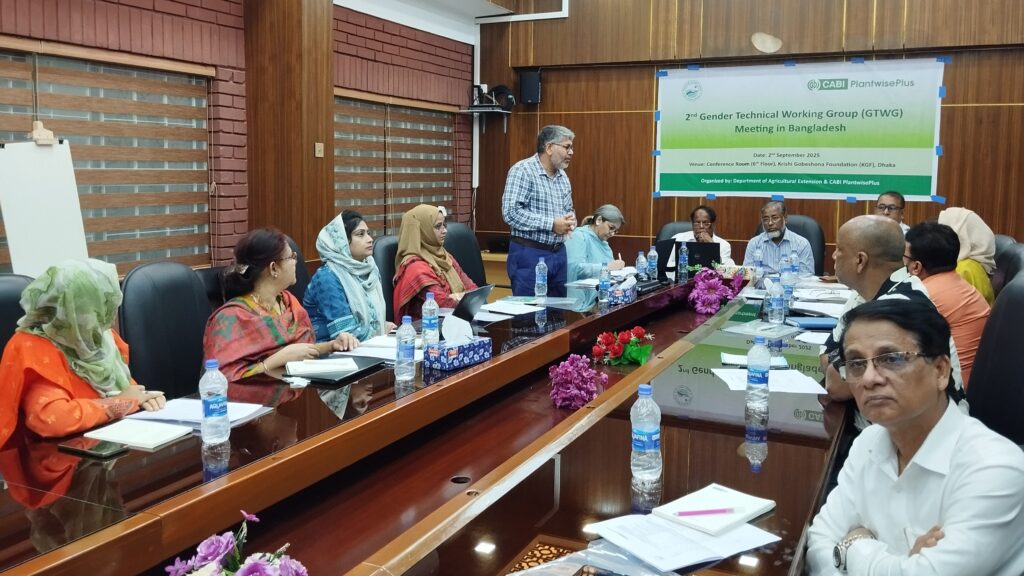
The meeting concluded with the creation of an action plan for the last quarter of 2025. It focused on empowering women and youth farmers through inclusive and justice-driven advisory services. As the GTWG continues to evolve, it will play a critical role in reshaping Bangladesh’s rural advisory ecosystem to be more accessible, impactful and inclusive.
Building capacity through Gender Training of Trainers (ToT)
PlantwisePlus aims to reinforce gender integration at the grassroots level. To support this goal, a Gender Training of Trainers (ToT) session was held in Dhaka for agricultural extension staff. The training took place at BARC, bringing together 15 staff members from DAE and representatives from INGOs and the Department of Women Affairs.
The sessions provided deep insights into gender dynamics in agriculture. They explored how entrenched social norms affect access to credit, land, resources, technologies, and training for women and men. Participants learned how to identify gender-specific constraints and develop practical strategies to deliver more equitable extension services. The event delivered case studies, interactive discussions, and reflective exercises. Participants were encouraged to rethink their current practices and incorporate gender sensitivity into communication, outreach, and data collection efforts.
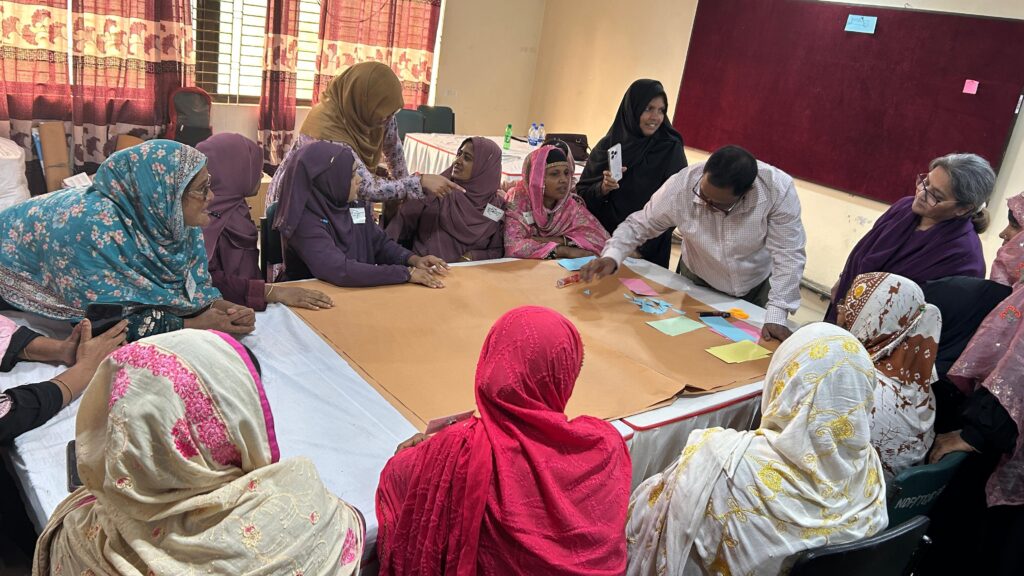
The trainees received certificates and will cascade their knowledge within their respective departments. This will drive long-term change in the institutional approach to gender and agriculture. ToTs are an effective tool for building sustainability into the PlantwisePlus programme. They embed lasting approaches over the long term, which, ultimately, benefits a greater number of rural women.
Advancing women’s empowerment
In a powerful demonstration of grassroots empowerment, a two-day agribusiness training was also recently held for women farmers. The Sustainable Livelihood Foundation held the event at the National Development Programme (NDP) Training Centre in Sirajganj. Fifty-five women farmers from Kalia Horipur, Saidpur and its surrounding communities attended the training. The event aimed to inspire and equip women farmers to engage in sustainable agribusiness. Specifically, it sought to leverage local resources and access advisory and financial support systems.
A highlight of the session was a presentation by Maryam Khatun, a registered seed entrepreneur from Saidpur. Her journey exemplifies resilience and entrepreneurship in the face of traditional gender barriers. Maryam shared real-life experiences and actionable insights on how women can break through limitations and establish successful agri-enterprises. The 2023 Women’s Empowerment in Agriculture Index (WEAI) study documented her success story. It serves as an inspiring model for rural women across Bangladesh.
Advisory and financial linkages
The agribusiness training featured sessions by Mr. Habibur Rahman, an agricultural extension officer. He covered topics such as access to quality seeds, tools, and cooperatives. A senior extension officer led a session on seed storage. It was especially relevant to the many women engaged in seed production.
Representatives from the Grameen Bank and Poly Karmo Sahayak Foundation (PKSF) delivered sessions on microfinance access. They introduced participants to budgeting, saving, reinvestment, and loan application processes. The sessions were aimed at building financial literacy and confidence among rural women. Access to credit is one of the many barriers that women living in farming communities face when it comes to generating income.
Looking ahead: A unified vision for inclusive agriculture
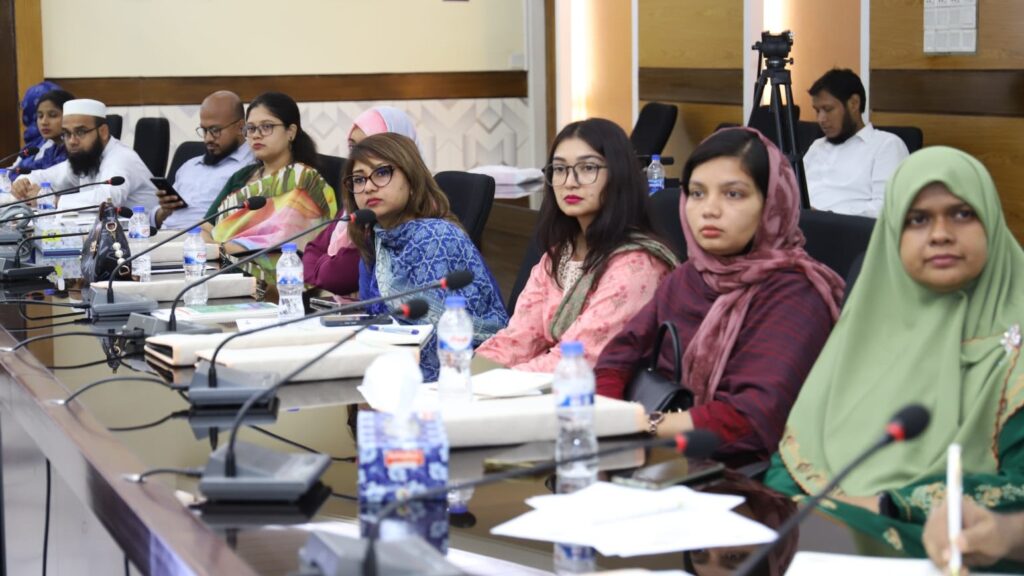
Government, development partners, and local organizations in Bangladesh are working together to include rural women in agriculture. Whether through working groups, digital innovation, or grassroots training, the focus remains clear: empower women and youth farmers in village communities to lead the way to building a sustainable, food-secure future.
As PlantwisePlus and its partners continue to roll out initiatives, the overall goal is to improve agricultural productivity and an inclusive agriculture sector.
Rural women have a vital role to play in the future of food security and strengthening the agricultural sector. The programme’s vision is to ensure that every farmer, regardless of gender or background, has a fair chance to thrive.
Empowering women farmers through Gender Technical Working Groups
Gender equality and youth inclusion: ten focus areas for impact
Pesticide risks for farmers in Sri Lanka: The overlooked gender divide
CABI calls for gender equality for rural women in Pakistan
PlantwisePlus gratefully acknowledges the financial support of the Directorate-General for International Cooperation, Netherlands (DGIS); European Commission Directorate General for International Partnerships (INTPA); UK International Development from the UK government; and the Swiss Agency for Development and Cooperation (SDC).
Related News & Blogs
5 ways digital agriculture tools are transforming pest management
Finding accurate, locally contextualised information at the right time is essential for tackling crop pests. Digital agriculture tools are helping farmers and those who advise them by putting expert knowledge directly in their hands. 1. Early pest diag…
12 February 2026

